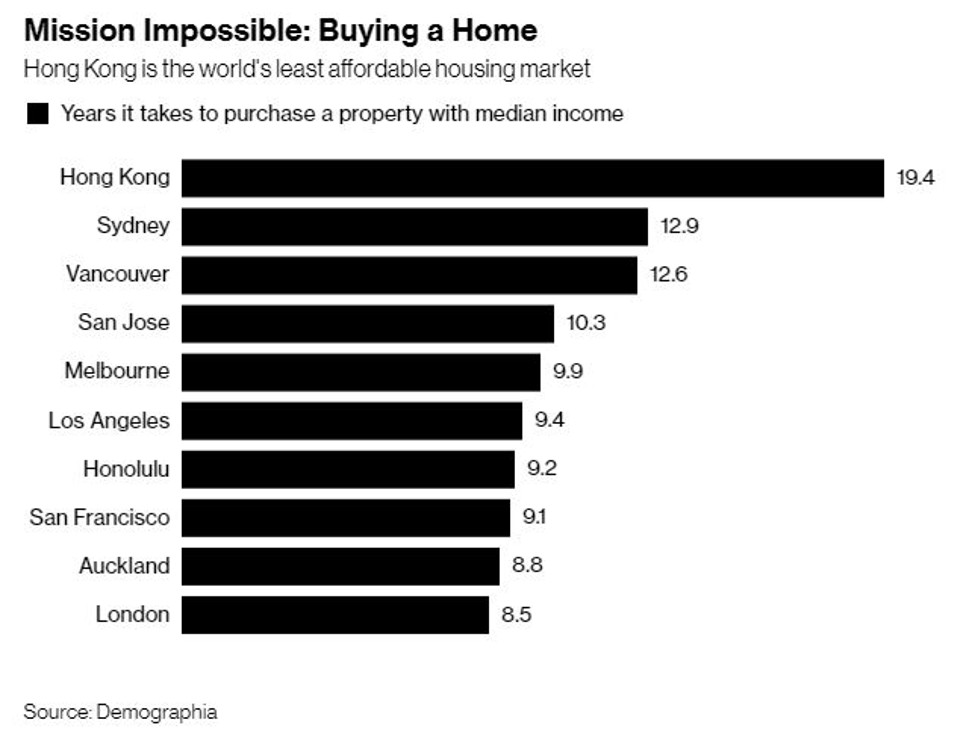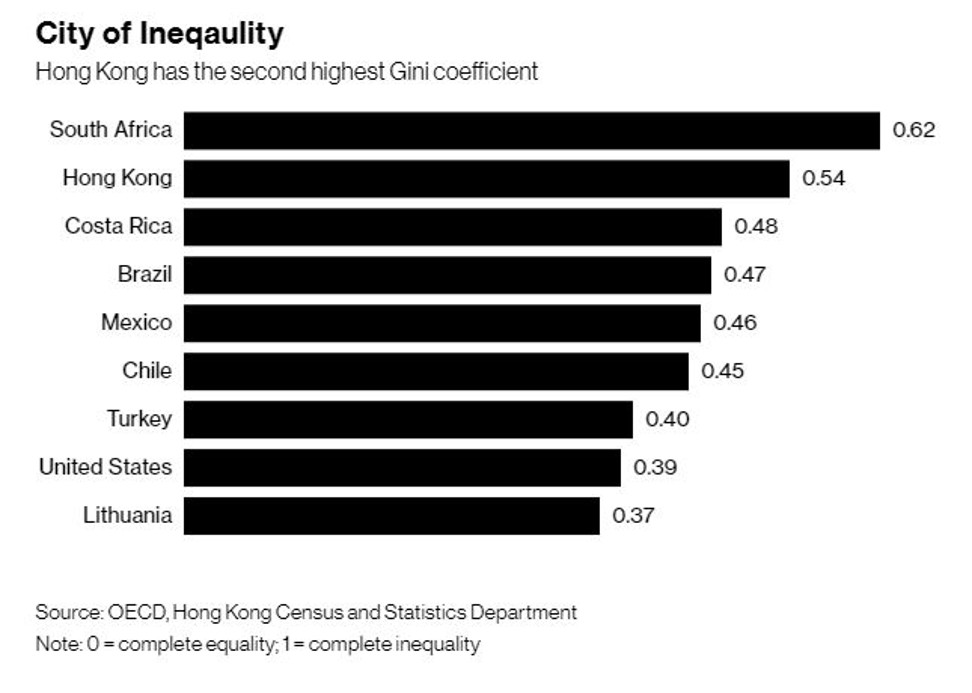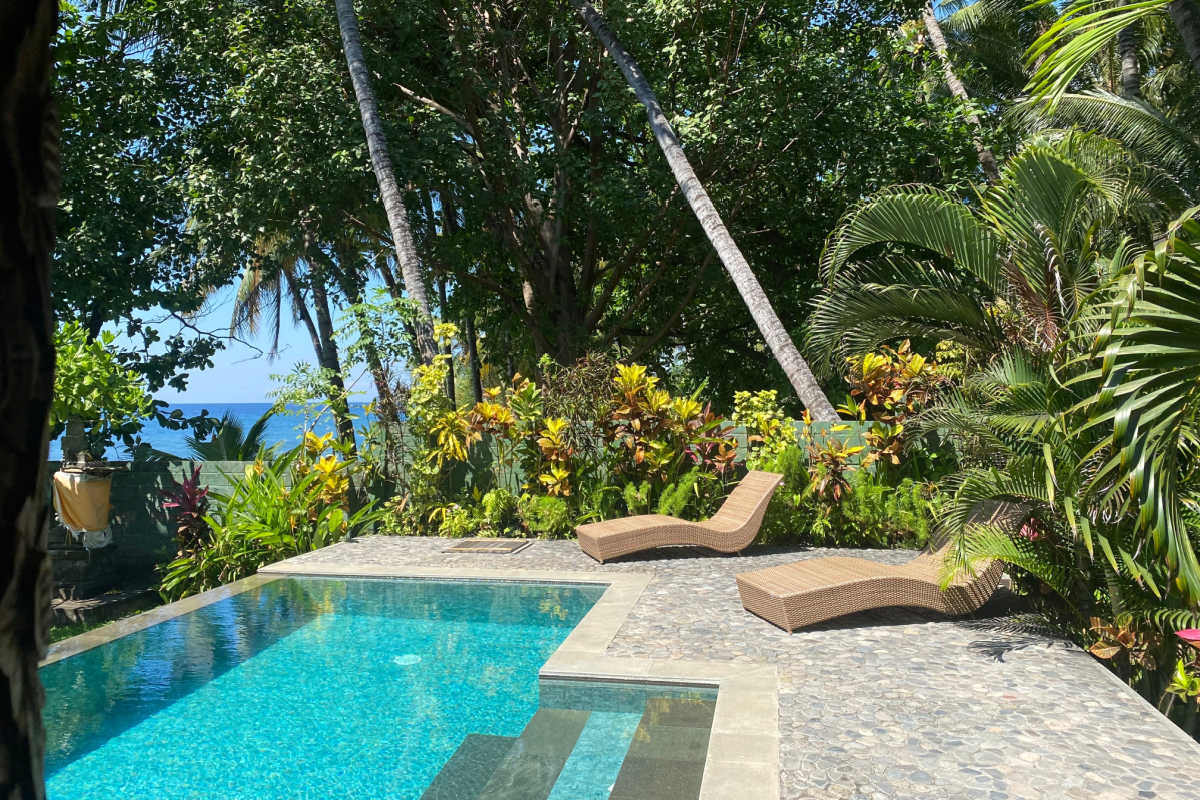If a property is held by a shell company then sale is considered a share transfer and taxed at 0.2 per cent – not the usual 15 per cent levy
BY BLOOMBERG1 AUG 2018

Pan Sutong, billionaire chairman of Hong Kong investment conglomerate Goldin Group, saved himself about US$41 million when he bought a home in the exclusive Hong Kong enclave of Deep Water Bay (above) for a reported US$318 million) – all thanks to legal tax loophole. Photo: Bloomberg
MORE ON
THIS STORY

ULTRA LUXURY
Huge US$32 million LA mansion sits on ‘the best street in Beverly Hills’
When Pan Sutong, the billionaire chairman of Hong Kong investment conglomerate Goldin Group, splashed out a reported HK$2.5 billion (US$318 million) for a home in the exclusive enclave of Deep Water Bay last year, he saved himself a cool HK$370 million in tax.
How did he do it? The three-storey mansion with swimming pool was held via a shell company, meaning the purchase incurred only 0.2 per cent in stamp duty.
Assuming Pan, a permanent Hong Kong resident, already owns property there, he would have paid a 15 per cent levy in a regular transaction.
STAMP DUTIES ARE MADE INEFFECTIVE BECAUSE THERE’S A BACK DOOR TO AVOID PAYING THESE
HENRY CHAN, RESEARCHER, LIBER RESEARCH COMMUNITY
In Hong Kong, that is a perfectly legal route wealthy people are increasingly using.
When a property is held by a company, its sale is considered a share transfer and taxed at 0.2 per cent – the same levy that applies to everyday stock trades.
Foodie neighbourhoods: Good food and wine lure property investors
As the government raised property stamp duties in a so far fruitless effort to tame runaway prices, the loophole has become more popular at the top end of the market, particularly for deep-pocketed mainland Chinese buyers.
The trend is somewhat jarring in a city plagued by a yawning rich-poor divide – one increasingly defined by who can and who cannot afford a home.

MORE ON
THIS STORY

ULTRA LUXURY
Huge US$32 million LA mansion sits on ‘the best street in Beverly Hills’
When Pan Sutong, the billionaire chairman of Hong Kong investment conglomerate Goldin Group, splashed out a reported HK$2.5 billion (US$318 million) for a home in the exclusive enclave of Deep Water Bay last year, he saved himself a cool HK$370 million in tax.
How did he do it? The three-storey mansion with swimming pool was held via a shell company, meaning the purchase incurred only 0.2 per cent in stamp duty.
Assuming Pan, a permanent Hong Kong resident, already owns property there, he would have paid a 15 per cent levy in a regular transaction.
STAMP DUTIES ARE MADE INEFFECTIVE BECAUSE THERE’S A BACK DOOR TO AVOID PAYING THESE
HENRY CHAN, RESEARCHER, LIBER RESEARCH COMMUNITY
In Hong Kong, that is a perfectly legal route wealthy people are increasingly using.
When a property is held by a company, its sale is considered a share transfer and taxed at 0.2 per cent – the same levy that applies to everyday stock trades.
Foodie neighbourhoods: Good food and wine lure property investors
As the government raised property stamp duties in a so far fruitless effort to tame runaway prices, the loophole has become more popular at the top end of the market, particularly for deep-pocketed mainland Chinese buyers.
The trend is somewhat jarring in a city plagued by a yawning rich-poor divide – one increasingly defined by who can and who cannot afford a home.

Demography of Hong Kong homes. Graph: Bloomberg
According to Hong Kong’s Companies Registry, the company holding the Deep Water Bay property had a change in directors in August last year.
Pan, who according to Bloomberg calculations is worth about US$2 billion, and an offshore firm were listed as the only directors in the entity.
The purchase price was reported in September by several local newspapers, which cited anonymous sources.
A spokesman for Goldin Financial Holding said Pan was not immediately available for comment.
The proportion of property transactions made via company share transfers on The Peak, the area of high-value residential land, and the south side of Hong Kong Island – where prices can easily run into the hundreds of millions of dollars – has jumped to 27 per cent this year from 13 per cent in 2013, according to the estate agency Midland Realty.
That was the year after the government introduced the Buyer’s Stamp Duty levied on companies and non-Hong Kong permanent residents buying properties.
About HK$14.5 billion of luxury homes sold in the two districts have involved the method since the beginning of 2017, Midland Realty’s data shows.
“Many buyers say they will only look at properties through special purpose vehicles,” said Koh Keng-shing, the CEO of Landscope Realty, a member of Christie’s International Real Estate.
Singer Taylor Swift has a thriving US$84 million property portfolio
Non-permanent residents can save even more through this route because they pay 30 per cent stamp duty.
Also, if the shell company is registered offshore, then the stamp duty can be as little as zero.
While the method helps rich buyers avoid multimillion-dollar tax bills, it deprives Hong Kong of revenue.
Research by land concern group Liber Research Community found that between November 2010 and May this year, the government lost out on at least HK$9.4 billion of taxes because of the method.

According to Hong Kong’s Companies Registry, the company holding the Deep Water Bay property had a change in directors in August last year.
Pan, who according to Bloomberg calculations is worth about US$2 billion, and an offshore firm were listed as the only directors in the entity.
The purchase price was reported in September by several local newspapers, which cited anonymous sources.
A spokesman for Goldin Financial Holding said Pan was not immediately available for comment.
The proportion of property transactions made via company share transfers on The Peak, the area of high-value residential land, and the south side of Hong Kong Island – where prices can easily run into the hundreds of millions of dollars – has jumped to 27 per cent this year from 13 per cent in 2013, according to the estate agency Midland Realty.
That was the year after the government introduced the Buyer’s Stamp Duty levied on companies and non-Hong Kong permanent residents buying properties.
About HK$14.5 billion of luxury homes sold in the two districts have involved the method since the beginning of 2017, Midland Realty’s data shows.
“Many buyers say they will only look at properties through special purpose vehicles,” said Koh Keng-shing, the CEO of Landscope Realty, a member of Christie’s International Real Estate.
Singer Taylor Swift has a thriving US$84 million property portfolio
Non-permanent residents can save even more through this route because they pay 30 per cent stamp duty.
Also, if the shell company is registered offshore, then the stamp duty can be as little as zero.
While the method helps rich buyers avoid multimillion-dollar tax bills, it deprives Hong Kong of revenue.
Research by land concern group Liber Research Community found that between November 2010 and May this year, the government lost out on at least HK$9.4 billion of taxes because of the method.

Gini Coefficient – a measure of the income or wealth distribution of residents. Photo: Bloomberg
“The stamp duties are made ineffective because there’s a back door to avoid paying these,” Liber Research Community’s researcher Henry Chan said.
The land concern group has urged the government to make it mandatory for companies owning residential properties to declare changes in fine beneficial ownership.
It is also a back door that is pretty much reserved exclusively for the ultra-rich.
That is because buyers using a shell-company structure generally are not permitted to take out a mortgage to finance the purchase.
In a city where housing survey data company Demographia estimates that it takes 19.4 years of income for the average person to buy a home, that is a non-starter for regular earners.
US copper miners’ hotel-turned-mansion is yours for US$6.2 million
People cannot just set up a new company for the purposes of evading tax, however.
A few years ago, Hong Kong’s government cracked down on the creation of new shell companies to buy property, which are taxed at 15 per cent now.
Still, the pre-existing shell companies pay only 0.2 per cent.
RELATED ARTICLES

HONG KONG PROPERTY
Hong Kong’s commercial landlords poised for bonanza from China’s vaccine safety woes as parents flock south for jabs

HONG KONG PROPERTY
Nearly half of Hong Kong flats rent for US$2,550 a month – 70 per cent of median household income

HONG KONG PROPERTY
Few takers for latest batch of flats at Hong Kong’s cheapest residential project this year

HONG KONG PROPERTY
How Britain’s post-war debt turned a small US outpost in Hong Kong into a staging area for its cold war operations in Asia

HONG KONG PROPERTY
Hong Kong’s commercial landlords poised for bonanza from China’s vaccine safety woes as parents flock south for jabs

HONG KONG PROPERTY
Nearly half of Hong Kong flats rent for US$2,550 a month – 70 per cent of median household income
For those who can afford it, it might seem the perfect way to save a lot of money, but there are some risks.
Purchasers may not be aware of liens, or debts owed on a property that must first be discharged before a sale can take place, or other hidden liabilities that can come with shell companies.
“While special-purpose vehicles can lower stamp duty tax obligations, the due diligence process can be quite time consuming,” Denis Ma, JLL’s head of research for Hong Kong, said.
“That can add to the overall transaction costs.”
Want more stories like this? Sign up here. Follow
“The stamp duties are made ineffective because there’s a back door to avoid paying these,” Liber Research Community’s researcher Henry Chan said.
The land concern group has urged the government to make it mandatory for companies owning residential properties to declare changes in fine beneficial ownership.
It is also a back door that is pretty much reserved exclusively for the ultra-rich.
That is because buyers using a shell-company structure generally are not permitted to take out a mortgage to finance the purchase.
In a city where housing survey data company Demographia estimates that it takes 19.4 years of income for the average person to buy a home, that is a non-starter for regular earners.
US copper miners’ hotel-turned-mansion is yours for US$6.2 million
People cannot just set up a new company for the purposes of evading tax, however.
A few years ago, Hong Kong’s government cracked down on the creation of new shell companies to buy property, which are taxed at 15 per cent now.
Still, the pre-existing shell companies pay only 0.2 per cent.
RELATED ARTICLES

HONG KONG PROPERTY
Hong Kong’s commercial landlords poised for bonanza from China’s vaccine safety woes as parents flock south for jabs

HONG KONG PROPERTY
Nearly half of Hong Kong flats rent for US$2,550 a month – 70 per cent of median household income

HONG KONG PROPERTY
Few takers for latest batch of flats at Hong Kong’s cheapest residential project this year

HONG KONG PROPERTY
How Britain’s post-war debt turned a small US outpost in Hong Kong into a staging area for its cold war operations in Asia

HONG KONG PROPERTY
Hong Kong’s commercial landlords poised for bonanza from China’s vaccine safety woes as parents flock south for jabs

HONG KONG PROPERTY
Nearly half of Hong Kong flats rent for US$2,550 a month – 70 per cent of median household income
For those who can afford it, it might seem the perfect way to save a lot of money, but there are some risks.
Purchasers may not be aware of liens, or debts owed on a property that must first be discharged before a sale can take place, or other hidden liabilities that can come with shell companies.
“While special-purpose vehicles can lower stamp duty tax obligations, the due diligence process can be quite time consuming,” Denis Ma, JLL’s head of research for Hong Kong, said.
“That can add to the overall transaction costs.”
Want more stories like this? Sign up here. Follow




No comments:
Post a Comment